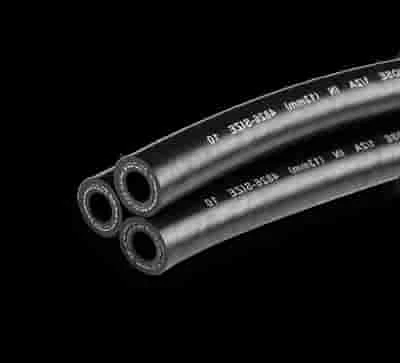e10 resistant fuel hose
Dec . 26, 2024 11:53 Back to list
e10 resistant fuel hose
Understanding E10 20% Resistant Fuel Hose A Key Component for Modern Vehicles
In recent years, the automotive industry has experienced significant changes driven by the increasing focus on sustainability and environmental considerations. One notable trend is the rising use of biofuels, particularly ethanol blends like E10, which consists of 10% ethanol and 90% gasoline. While E10 is compatible with many existing vehicles and helps reduce harmful emissions, it does pose some challenges when it comes to fuel system components. This is where the E10 20% resistant fuel hose comes into play, serving as a crucial element for modern vehicles transitioning to more eco-friendly fuel options.
The Need for E10 Resistant Fuel Hoses
Ethanol, while beneficial for reducing greenhouse gas emissions, can be more corrosive than traditional gasoline. This means that vehicles designed for conventional fuels may experience issues if exposed to higher ethanol concentrations. Many materials used in fuel hoses may degrade or become less effective when in contact with ethanol, leading to fuel leaks, reduced performance, and potential safety hazards. Therefore, automotive manufacturers have recognized the necessity for fuel hoses designed to withstand the specific challenges posed by E10 and similar ethanol blends.
The E10 20% resistant fuel hose is engineered to provide enhanced durability and resistance against the corrosive properties of ethanol. These hoses are typically manufactured from advanced materials that exhibit superior resistance to the chemical effects of ethanol, ensuring that they maintain their integrity over time. This helps prevent failures that could result in fuel leaks and other operational issues.
Key Features of E10 20% Resistant Fuel Hoses
1. Material Composition E10 resistant fuel hoses are often made from synthetic materials such as fluoropolymer, which offers excellent chemical resistance. These materials are designed to handle the unique properties of ethanol and other biofuels without the risk of degradation.
e10 resistant fuel hose

2. Temperature Resilience In addition to chemical resistance, these hoses are designed to withstand a wide range of temperatures. Whether under high-pressure conditions or varying environmental temperatures, the E10 resistant fuel hose maintains its performance reliability.
3. Flexibility and Ease of Installation A quality fuel hose should also be flexible enough for easy installation, without compromising its structural integrity. E10 resistant hoses strike a balance between robustness and flexibility, making them suitable for various vehicle models and configurations.
4. Pressure Ratings E10 resistant fuel hoses are built to handle the pressure levels commonly found in fuel systems. This ensures that they can effectively manage the demands placed on them by the fuel injection systems of modern vehicles.
The Importance of Quality and Compliance
When choosing E10 20% resistant fuel hoses, it is crucial to ensure that they meet industry standards and certifications. Hoses should be tested and certified by appropriate regulatory bodies to guarantee their reliability and safety. Poor-quality hoses can compromise not only the vehicle’s performance but also the safety of the driver and passengers.
Conclusion
As the automotive industry continues to adapt to a more eco-conscious consumer base, the importance of components like the E10 20% resistant fuel hose cannot be overstated. These hoses play a critical role in ensuring that vehicles operate safely and efficiently while utilizing ethanol-blended fuels. By investing in high-quality, durable fuel hoses, vehicle owners and manufacturers can contribute to a more sustainable future without sacrificing performance or safety. In an era defined by change, the E10 20% resistant fuel hose stands as a testament to innovation, highlighting the industry's commitment to both advancement and environmental responsibility.
